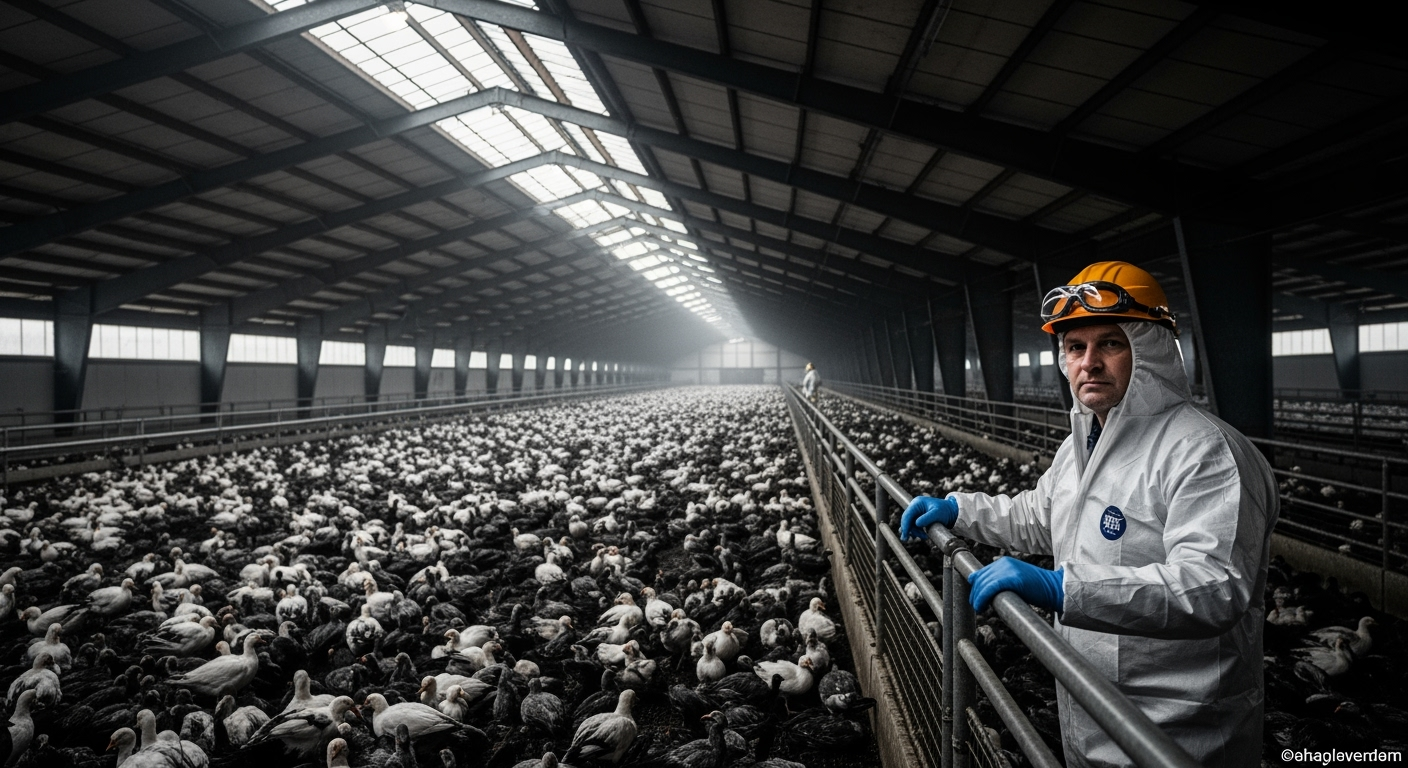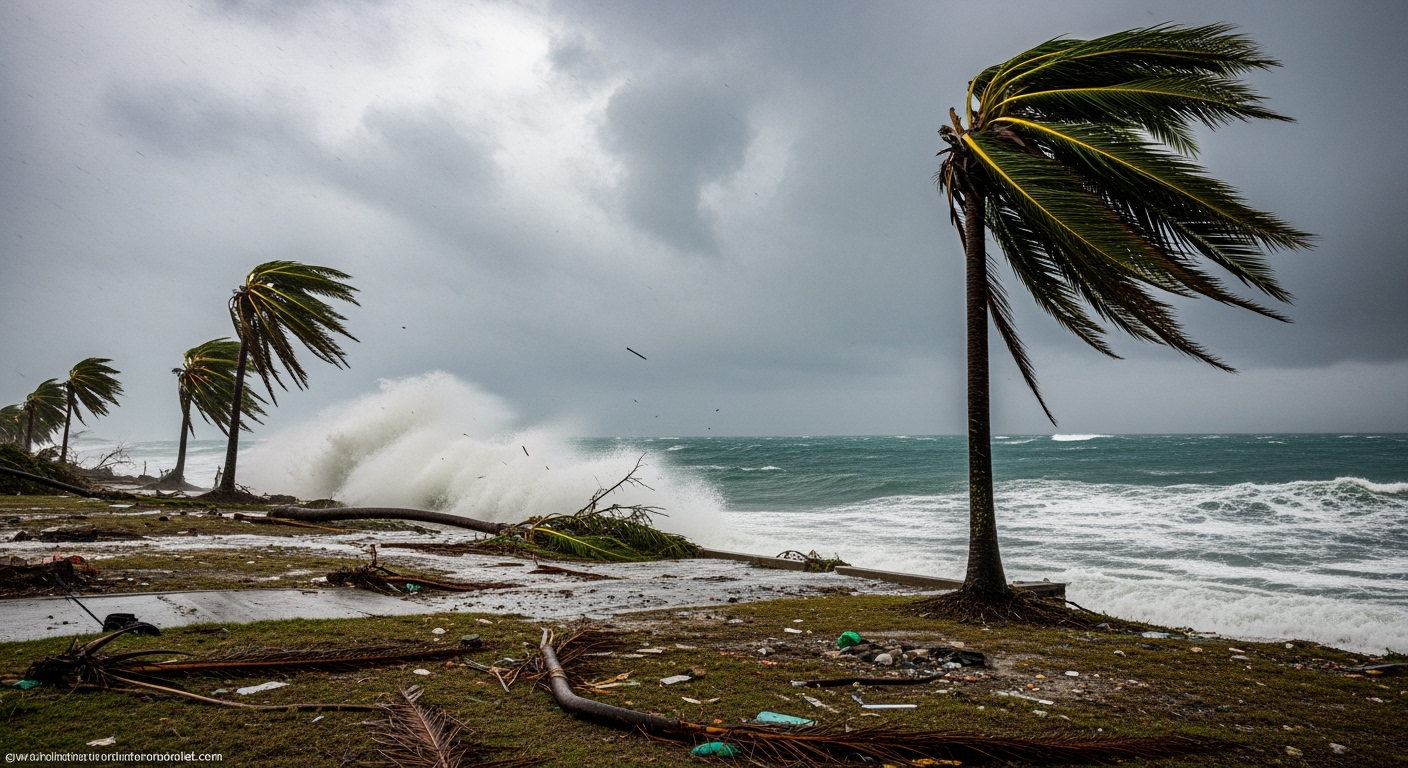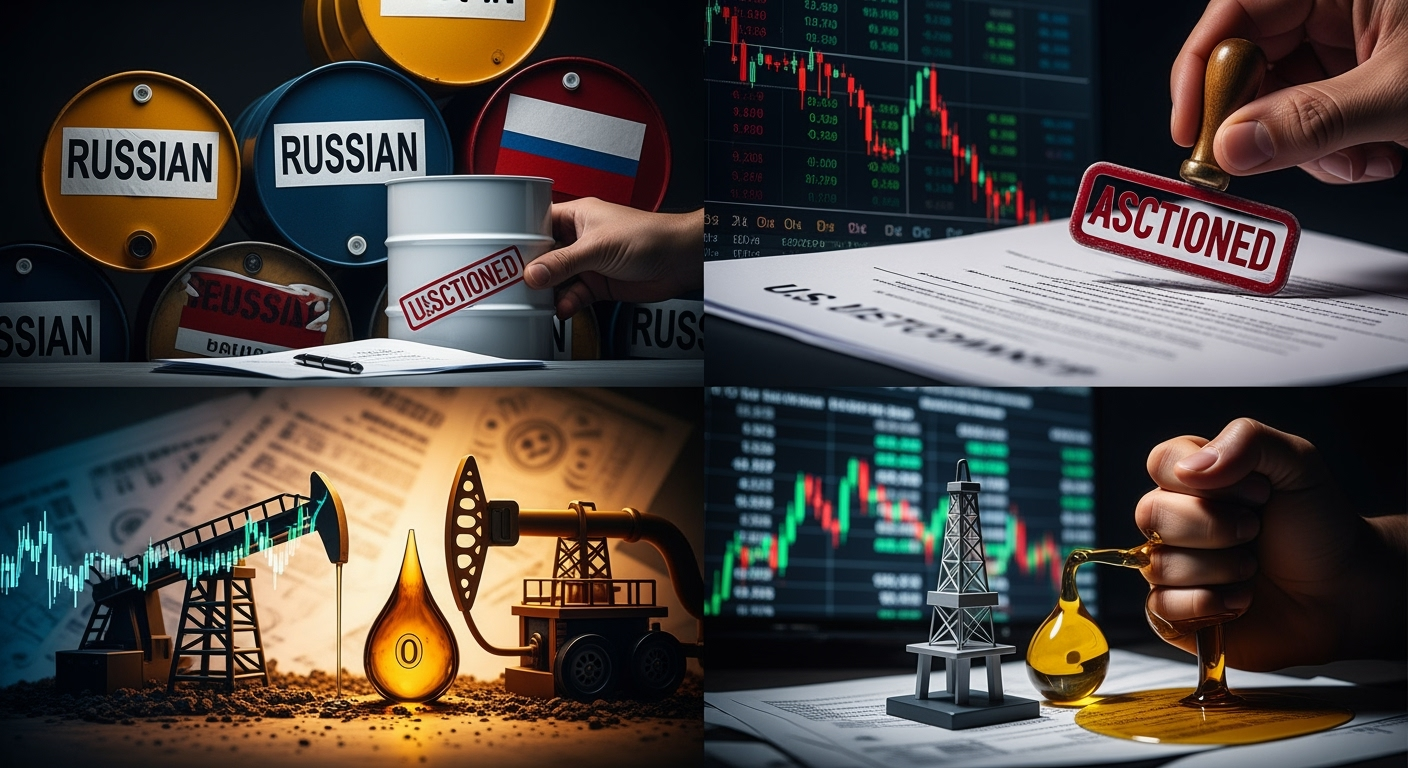Related Articles

Ivory Coast's Ouattara Secures Fourth Term Amidst Widespread Opposition Boycott and Disputed Eligibility

Germany Faces Unprecedented Bird Flu Outbreak, Half Million Birds Culled





Washington, D.C. — In a significant escalation of economic pressure, the United States on Wednesday imposed sweeping sanctions on Russia's two largest oil companies, Rosneft and Lukoil, along with their extensive networks of subsidiaries. The move, announced by the Treasury Department, targets key pillars of the Kremlin's revenue generation, aiming to cripple Moscow's ability to finance its ongoing military aggression in Ukraine. This action marks a notable hardening of the U.S. stance, coming after what American officials described as Russia's persistent refusal to engage in meaningful peace negotiations.
U.S. Treasury Secretary Scott Bessent stated that the sanctions were a direct response to President Vladimir Putin's "refusal to end this senseless war." The measures are designed to "increase pressure on Russia's energy sector and degrade the Kremlin's ability to raise revenue for its war machine and support its weakened economy." The Office of Foreign Assets Control (OFAC) designation effectively blocks all property and interests in property of Rosneft and Lukoil, and any entity owned 50 percent or more by them, that are within U.S. jurisdiction or in the control of U.S. persons. Furthermore, foreign financial institutions facilitating significant transactions with these designated entities now face the risk of secondary sanctions, including potential restrictions on maintaining correspondent or payable-through accounts in the United States.
Rosneft, a state-linked, vertically integrated energy firm, holds immense sway over Russia's energy landscape, accounting for approximately 6% of global oil production and nearly half of Russia's total oil output. Lukoil, a privately held multinational, also plays a crucial role in the exploration, production, refining, marketing, and distribution of oil and gas both within Russia and internationally. Together, these two behemoths are responsible for exporting 3.1 million barrels of oil per day. The breadth of the sanctions extends to dozens of Russia-based subsidiaries involved in operations ranging from oil refineries to gas field development, encompassing virtually all entities directly or indirectly controlled by the two oil giants.
The decision to target Rosneft and Lukoil represents a notable shift in the Trump administration's approach to sanctioning Russia. President Donald Trump had previously demonstrated reluctance to impose new, broad sanctions on Moscow, often opting for trade measures instead, as he expressed hopes of persuading Putin towards peace. However, officials indicated that the President's patience had worn thin following continued lack of progress in ceasefire negotiations and escalating Russian military actions. The announcement came just a day after a planned Trump-Putin summit in Budapest was reportedly shelved, underscoring the deteriorating diplomatic environment.
Treasury Secretary Bessent explicitly called for an "immediate ceasefire" and urged international allies to "join us in and adhere to these sanctions." This push for allied alignment follows a similar move by the United Kingdom, which had already announced its own package of 90 new sanctions targeting Russia's energy sector, including Rosneft and Lukoil, on October 15. The European Union also aligned with the increased pressure, unveiling its own fresh set of sanctions on Wednesday. These EU measures include a ban on importing liquefied natural gas (LNG) from Russia by 2027, the blacklisting of specific oil tankers utilized by Moscow, and travel restrictions on Russian diplomats.
The sanctions coincide with a period of heightened military activity, including waves of Russian drone and missile attacks across Ukraine that claimed civilian lives, and Russia conducting significant nuclear arms training exercises. This backdrop emphasizes the gravity of the U.S. and allied actions, signaling a unified front against Russia's continued aggression.
The impact of these sanctions on Russia's energy-dependent economy is expected to be significant. The U.S. and its allies have a history of employing economic sanctions against Russia's energy sector, dating back to Russia's initial invasion of Ukraine in 2014 and expanding substantially after the full-scale invasion in February 2022. Earlier measures, such as those imposed in 2014, restricted technology transfers for deepwater and Arctic oil exploration, as well as shale oil projects in Russia, and targeted specific energy entities like Rosneft and Novatek.
While Russia has demonstrated resilience in maintaining crude exports despite previous sanctions, often rerouting supplies to Asian markets like China and India through what is termed a "shadow fleet" of aging tankers, U.S. sanctions have historically proven highly effective. Research indicates that vessels designated by OFAC experience an average productivity decline of 70%, significantly more than those sanctioned exclusively by the EU or UK, which see a 30% reduction. This disparity underscores the broader hesitancy among Russia's trading partners to challenge U.S. institutions, likely due to significant exposure to the U.S. dollar in global trade and finance.
The Kremlin has consistently vowed to mitigate the effects of sanctions, exploring alternative supply routes and financial mechanisms to sustain its energy exports. However, the concerted nature of these latest sanctions from the U.S., coupled with existing and new measures from the UK and EU, presents a formidable challenge to Russia's economic stability. Previous rounds of sanctions, such as those in January 2025, have led to immediate spikes in global crude oil prices, indicating the sensitivity of the market to disruptions in Russian supply. This highlights the delicate balance between pressuring Russia and managing global energy market stability.
The United States' imposition of comprehensive sanctions on Russia's leading oil companies, Rosneft and Lukoil, marks a pivotal moment in the ongoing economic confrontation surrounding the war in Ukraine. This strategic move aims to directly undermine Russia's financial capacity to sustain its military operations by targeting the core of its energy revenue. The sanctions reflect a growing frustration within the U.S. administration over Moscow's perceived intransigence in peace efforts and signal a resolve to intensify pressure until a diplomatic resolution is achieved.
With key allies like the United Kingdom and the European Union implementing parallel measures, Russia faces an increasingly unified and robust economic blockade. While Moscow has demonstrated an ability to adapt to previous sanctions, the sweeping nature and global coordination of these latest actions are expected to pose significant challenges to its energy sector and broader economy. The international community watches closely as these economic maneuvers unfold, hoping they will ultimately compel Russia towards a genuine commitment to peace in Ukraine.